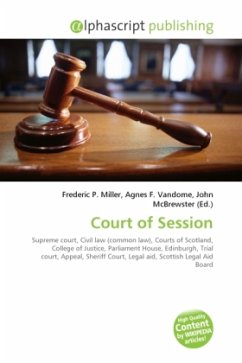High Quality Content by WIKIPEDIA articles! In law, bifurcation is a judge's ability to divide a trial into two parts so as to render a judgment on a set of legal issues without looking at all aspects. Frequently, civil cases are bifurcated into separate liability and damages proceedings. Criminal trials are also often bifurcated into guilt and sentencing phases, particularly in capital cases.Under the American Federal Rules of Civil Procedure, Rule 42 allows the court to decide issues contained in a single suit in separate trials. Bifurcation does not affect the party structure of the suit itself, but merely allows multiple trials inside of one suit. Conversely, the court may allow combination, which permits two separate suits to be joined together in a single trial. This is done through Rule 42.Bifurcation is distinctly different than severance, which under Rule 21 creates separate suits. The practical distinction is that severance results in separate judgments, whereas bifurcation yields a single judgment







